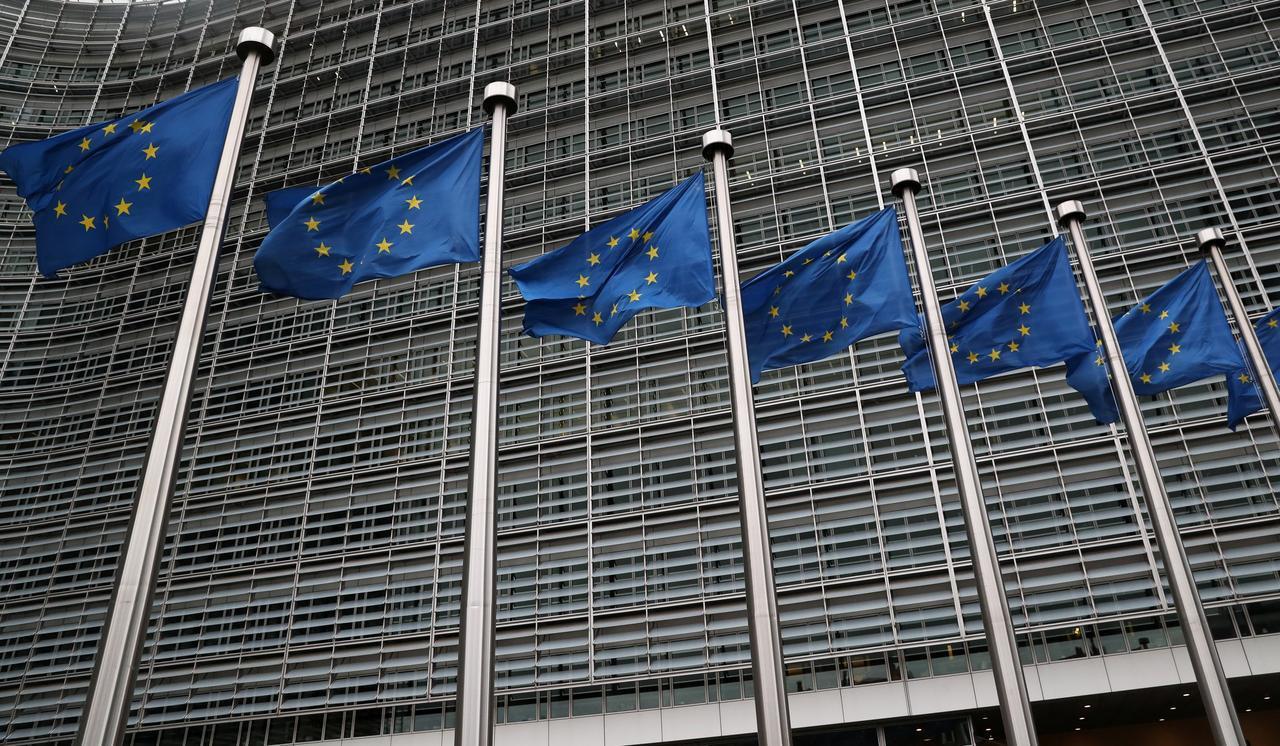Ankara urges EU to reconsider its enlargement policy
ANKARA-Anadolu Agency

European Union flags fly outside the European Commission headquarters in Brussels, Belgium, March 6, 2019. (REUTERS File Photo)
Turkish Foreign Minister Mevlüt Çavuşoğlu has written a letter to officials in Europe on the European Union's new enlargement policy.
The letter was sent to EU high representative Josep Borrell, Oliver Varhelyi, commissioner for European neighborhood policy and enlargement negotiations, and Gordan Grlic-Radman, Croatia's minister of foreign and European affairs.
Croatia holds the presidency of the EU Council until July 2020.
In the letter, Çavuşoğlu stressed the importance of conducting the expansion process in a credible, sustainable, fair and flexible manner, highlighting Turkey's accession process to the EU.
The letter drew attention to the importance of the method that is followed during the accession negotiations to the EU and the regional and global role that the EU wants to play in the future.
Çavuşoğlu also said in the letter that when Turkey's negotiations for accession to the EU, which began 2005, are considered, it can be said that the political obstacles faced by candidate countries during accession negotiations harmed the credibility of the accession process.
The letter said the accession negotiations should be carried out based on the common interests of the EU rather than the national interests of some member states.
The letter also drew attention to the importance of Turkey's membership in the EU.
According to the EU's current enlargement policy, 35 separate accession negotiations are opened for candidate countries. When candidate countries succeed in the negotiations or commit to realizing all the necessary reforms, they are accepted to the union as a full member.
The member countries can then take full advantage of the union, including European programs, science grants and the right of its citizens to move freely in EU countries without a visa.
In November last year, France offered new methods and rules to accept candidate countries into the union.
According to this plan, candidate countries will be examined in seven steps. They will be expected to realize the reforms in a seven-step process and will not be able to pass the next step before completing the previous one.
When the candidate countries pass the next step, they will be able to access some advantages of the EU but will not be an EU member until they complete all the steps.
The seven steps are listed as the following; rule of law and fundamental rights, education and research, employment and social affairs, financial affairs, the single market, agriculture and fisheries, foreign affairs, "others".
Some candidate countries are upset over this offer because they think that France is changing the rules after the game has started and there will not be any guarantees that the rules will not change again.
This statement brought about new discussions on the union's enlargement policy.
The EU Commission is expected to publish a work in February that will draw up the new methods of the policy.
















